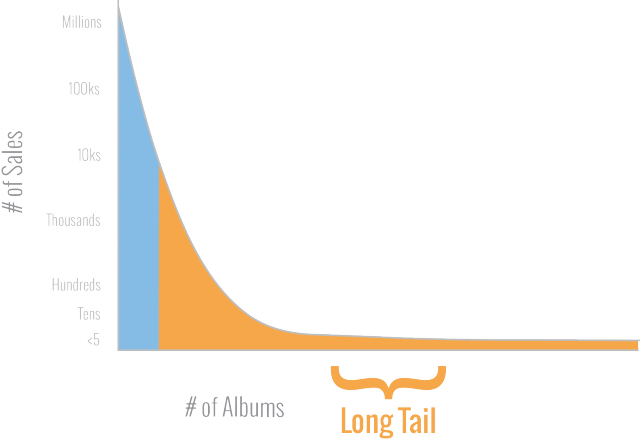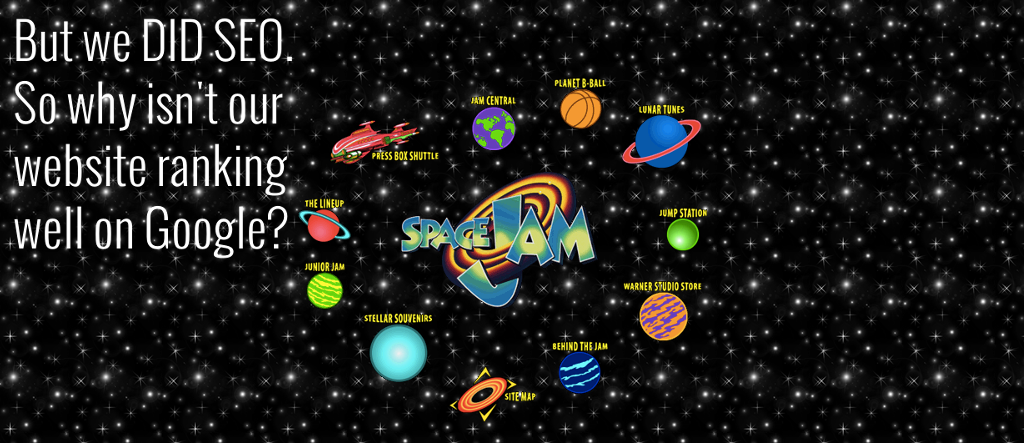Multifamily Blogs
9 Apartment SEO Myths
9 Apartment SEO Myths
Search engine optimization--SEO for short--is both vitally important for most businesses and widely misunderstood. In this sense it's like many other elements of online marketing--Craigslist, pay per click advertising, website design, etc.
This leads, predictably enough, to radically different experiences with SEO from person to person. Someone who works with a person who knows their stuff will reap considerable rewards from SEO work. On the other hand, apartment communities that work with a less knowledgeable person will likely come away thinking that SEO doesn't work and is a waste of time. So today we want to talk about some of the most common apartment SEO myths, where they come from, and why they aren't actually true.
Apartment SEO doesn't work.
Why this myth exists: Many apartment communities that are new to the world of online marketing have tried doing some sort of SEO work. In some cases, this "SEO work" was actually not legitimate SEO but rather tactics that have been condemned by search engines, such as buying links or keyword stuffing. In other cases, it was valid SEO work that the community didn't stick with long enough or that didn't work due to other problems in the community's overall marketing strategy.
Regardless of the reason, this is one of the most persistent myths you'll find if you spend enough time in the SEO world.
Why this myth is wrong: The main issue here is that it simply doesn't make any sense given the business model that search engines are built on. Search engines are only valuable to their users if they provide them with good results. If you don't believe me just tell me the last time you looked something up on Lycos. Search engines are run by businesses that are no different than any other business. They have a product and that product needs to be valuable in order to be sold.
So as we think about this, search engines must have some rational way of assessing a website's quality and usefulness which influences the results they show their users. So if webmasters can figure out what search engines care about they can in turn figure out how to rank well on search engine result pages. And the good news here is that we actually know a decent amount about what search engines care about when ranking websites. This means that if we build websites that do the things search engines want them to do, they should rank well.
Apartment SEO is a one-time task.
Why this myth exists: There are multiple parts to good SEO work. Some of it is something that you do one time like making the site mobile-friendly or setting up your page URLs correctly. But other parts of SEO are ongoing like producing high quality content, keeping an eye on new developments with major search engines like Google, and updating old pages to keep them relevant and useful. So this myth exists because it's half-correct: There are certain parts of SEO work that are one-time tasks or at least highly infrequent tasks.
Why this myth is wrong: The thing you have to understand is that the primary fuel for SEO work is content. So you can set up your site correctly, obey all the rules, and so on. But if you aren't producing content it won't really matter. Consider this screen capture from a side project I do during free time. I started blogging on that site in December--look at how the traffic numbers rose when I did that:

So it's certainly true that some parts of SEO are one-time tasks. But the most important parts of SEO are decidedly not.
Apartment SEO is too much work.
Why this myth exists: There are two different concerns standing behind this myth. The first is that, as mentioned above, search engine optimization looks like an impenetrable black box to many who aren't familiar with internet marketing and so any kind of work sounds like something really difficult. In many cases this has more to do with people simply not knowing how SEO works than it does with the actual difficulty of the task.
That said, there is another sense in which good apartment SEO work does take time and effort that many are not willing to give it. Part of the problem here is actually the fault of some SEO professionals as they (we) are not always as careful as we ought to be about communicating realistic timelines for search engine optimization work. On this point, this video from Moz is extremely helpful.
If you want to do good SEO work, you need to take the time to create a good website and to make good content to put on that website. All of that takes time. You also need to think about things like URL structure, structured data, and some other more technical points. All of that takes more time. When you do it the right way the reward is nearly always well worth the work, but it's not always easy to remember that when you're actually doing the work.
Why this myth is wrong: Long-term good apartment SEO work will pay for itself in the form of high-quality leads and a more efficient leasing process. But we should also flip this question around--is it possible that not doing apartment SEO work will actually create more work for your team? We believe the answer to that is an unambiguous "yes." If you get your SEO work right, then long-term you are well positioned to generate a steady supply of quality leads that should convert at a higher rate, thereby making your leasing staff more efficient.
On the other hand, if you don't do this SEO work then you're setting yourself up to be where many of our clients are when they come to us: scrambling around trying to find leads through "outreach marketing," social media tricks, and expensive internet listings. These strategies generally offer fewer leads who also tend to be much colder because they haven't been able to do the kind of research before speaking to your leasing staff that leads generated via SEO have.
So yeah, SEO demands some intensive work and regular upkeep. But the question isn't whether you can afford to do that work, it's whether you can afford not to.
Apartment SEO is too complicated.
Why this myth exists: As mentioned above, SEO can sound like some sort of magical incantation to people who aren't familiar with search engines or online marketing. But often times the things that sound really complicated actually aren't that difficult to understand.
Take URL structures for example. Though they aren't a major ranking factor, URLs are factored in by search engines when ranking pages. Additionally, an understandable URL can help human users know what to expect from a page, which is another reason you want to structure them correctly.
Let's take two examples below: The first website's floorplan page has this URL: www.apartmentcommunity.com/1204142bd. The second is www.apartmentcommunity.com/2bedroomfloorplan. Which of those two is easier for you to understand? The second, right? In the first case we just have a bunch of random numbers and letters. (They actually aren't random--I just made up a random date, presumably the date the page would have been created, and then put in 2bd for "two bedroom." But it still looks random.) The second page, in contrast, is clearly about the community's two bedroom floorplan.
That's really all there is to URL structure. Are you creating URLs for your pages that are complicated and confusing or clear and precise?
Many other SEO concepts are similar. For example, we sometimes run into websites that have canonicalization issues. This is another one that sounds complex because of that huge word we used to describe it, but once again it is fairly simple: If you don't set up your website correctly when you're launching it, you can end up with two version of the same site on almost identical domain names, which confuses search engines because they don't know which site is authoritative or canonical. So it sounds complicated but really it's a simple matter of communicating your intentions for the site to the search engine.
Why this myth is wrong: Many SEO concepts are not as complex as they first sound. Indeed, if you work with a capable SEO professional you can usually get fairly easy-to-understand explanations for most SEO concepts that might sound much more complicated when you first hear the term.
Apartment SEO is a scam.

Why this myth exists: This myth exists for a fairly simple reason: There is no shortage of scams out there purporting to be "SEO." In many cases when someone says that SEO is a scam they're saying that because they or someone they know got an email one day promising to do x, y, and z for them and they believed it. They likely paid a large sum of money to the person. And then the person disappeared. Or the work never got done. Or they got a temporary bump in traffic and then got a nasty Google penalty that they still haven't recovered from.
One thing we often recommend to people with questions on this issue is that if someone is telling you they can do something with search engines that sounds too good to be true, it almost certainly is. And if you hear them talking a lot about backlinks and keywords, then you should run away fast.
Why this myth is wrong: The uncomfortable thing here is that the myth actually isn't wrong depending on what you mean by "apartment SEO." If you mean "producing content that apartment shoppers find useful and helpful," then it's not at all a scam. But if you mean "buying up links and stuffing keywords into every nook and cranny of the site," then yes, that's a scam and Google will punish you for it.
Apartment SEO is about being first for "apartments in (city, state)."

Why this myth exists: This myth exists for a relatively simple reason: Many people think that success on search engines requires being the top ranked result for one or two high frequency search terms. They imagine thousands upon thousands of people searching for that keyword and think "if only we ranked first for that, then we'd really be doing well." But this is almost never how SEO ought to be done and it is certainly not how it should be done in our industry.
Why this myth is wrong: In general, this strategy should be avoided because of what is called the "long tail strategy." Briefly stated, the idea is that it's better to get 10 visits each from 75 different keywords than to get 500 visits from one keyword. The former strategy won't be widely noticed or attract as much attention, but it actually generates considerably more traffic than the latter strategy. So, for example, with my soccer site I've mentioned before, I could spend tons and tons of time and money trying to rank for "soccer newsletter" or "soccer blog" or some such.
But there's no way I would be able to win those keywords realistically. However, if I generate lots of good content and start winning keywords like "atletico madrid tactics," "liverpool 3-4-3," or "roger schmidt tactics" (and I rank well on all of those right now) then I can generate some considerable traffic from all of those more specific keyword searches.
There's a second reason specific to multifamily that long-tail thinking should be preferred. If someone searches "apartments in lincoln ne" that suggests they are at the beginning of the apartment search and aren't necessarily a great lead for your community anyway. If they have a dog and you don't allow pets, that lead is useless to you. If your price is outside their range, then the lead is useless. If they want something in another part of town, then that lead is useless. It's actually far better to rank for "two-bedroom apartments in uni place lincoln ne" because that suggests the person has fairly specific needs--and if you meet all of those then you are instantly in a strong position to convert that lead into a lease. The same thinking applies to someone who searches for your community by name. If a person does that then you know that they already know your community exists and are interested in you enough to search for you--so that's another high-quality lead you want to find your community website.
So the long-tail strategy doesn't win simply because it probably generates more traffic, it also wins because the traffic it generates is higher quality.
Apartment SEO is magic.
Why this myth exists: When I talk to someone from our development team, most of what they describe to me sounds like magic. I don't understand what they do, I only see the outcomes. This is how SEO is for most people. They hear vague references to words that sound like they mean something and simply trust that it'll work.
Unfortunately, this is where most of the misinformation about SEO comes from. Because most people don't understand what SEO professionals do it is very easy for less scrupulous people to take advantage of less knowledgeable business owners.
Why this myth is wrong: As we discussed above, there actually is a discernible order to search engine optimization. Companies like Moz have a fairly developed idea of what goes into ranking well with search engines. Factors ranging from quality content to the authoritativeness of a domain or a page to social signals to more behind-the-scenes technical issues like structured data, user bounce rate, and so on all factor into the ranking formula for search engines. So it's simply not true that SEO is some sort of uncontrollable magic. Search engines are defined, rational products created by real businesses. There is a defined order to them, in other words. And if you know how it works, you can build up a nice presence on organic search.
Apartment SEO isn't affected by the quality of my website.

Why this myth exists: This myth is closely related to some of the others we've discussed. When you get your SEO information from any of the scam-artists out there today, they are going to tell you that everything depends upon behind-the-scenes technical work that they have to do. They'll tell you that they can get reliable search traffic to any site. They claim that SEO is this thing that exists completely separate from the quality of your website.
And, many many years ago, that was kind of true. Search engines weren't particularly sophisticated and it was relatively easy to drive traffic to a website, even if that site wasn't good. You just had to know how to game the algorithm. But that changed when Google rolled out their Panda and Penguin updates in 2011 and 2012 respectively. Since then, Google has become very, very good at detecting when a person is trying to manipulate the search engine in order to have better keyword rankings.
Why this myth is wrong: Put yourself in the place of a company like Google that maintains a search engine. The search engine is the way you establish a relationship with your users and get them to sign up to use your other services, like email, Drive, Maps, YouTube, Analytics, and so on. So you have to make a good first impression or you won't maintain any kind of relationship with them--so you won't make any money off them.
Additionally, the vast majority of your revenue comes from paid search advertisements. So if your search engine is bad, you not only lose people who could use your other services in the future, thereby contributing to your business, you also lose paid search clicks that directly generate income for you.
How, then, do you guarantee that people will keep coming back to your search engine? You make sure the results you give them are useful and relevant. And you do that by developing ranking systems that reward high-quality sites and ignore the lower quality.
Simply put, the only way a search engine says in business is if there is a strong relationship between search engine success and website quality.
Apartment SEO is easy.
Why this myth exists: This is the myth you can run into if someone has worked with a good SEO professional, has reaped the benefits, and now thinks they know all about SEO. They didn't do terribly much to get the SEO work done, but they are seeing the many benefits from it: their traffic numbers are up, leads are coming in, they are converting into leases. Life is good. And you didn't even have to do that much work.
Why this myth is wrong: This is one of those classic examples of something looking really easy until you try to do it yourself. SEO is a rational process, but that's not the same as it being an easy process. In rare cases companies might have a marketing professional who knows a bit about coding who can get everything set up correctly. But that would be an unusual case. And even there you'd need to have a plan for content as well. So while SEO is certainly worth the work and can be understood with a bit of study, that doesn't mean it is easy to implement.


